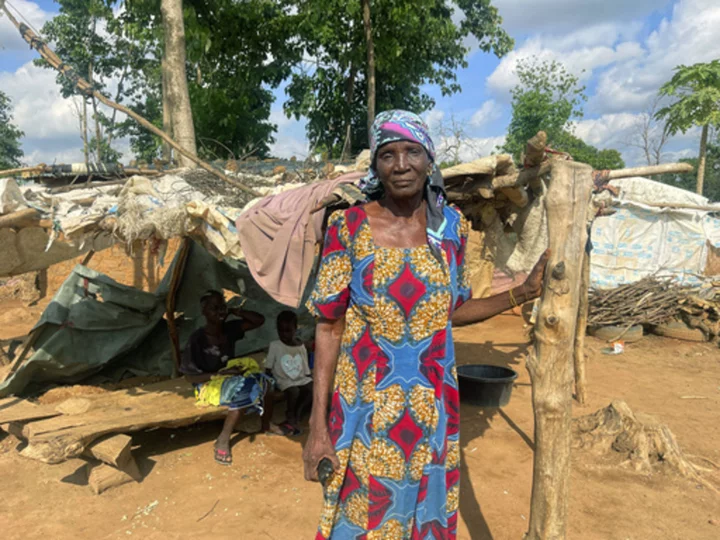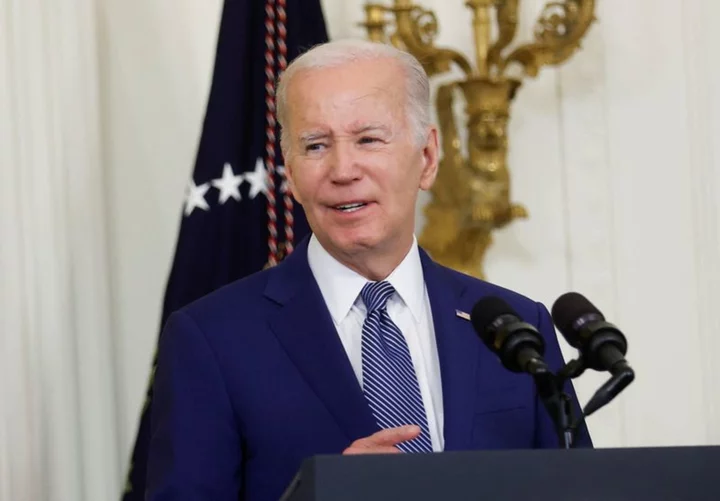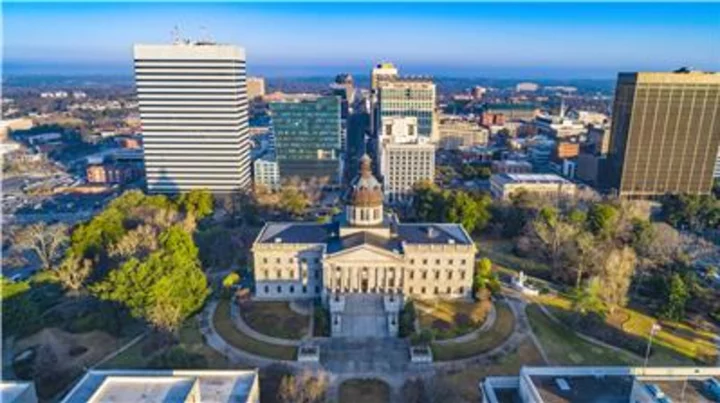ABUJA, Nigeria (AP) — On a breezy morning at the height of the dry season six months ago, Rifkatu Andruwus and her children were chatting in front of their house in a displacement camp in the heart of Nigeria’s capital. Suddenly, security forces stormed into the camp, followed closely by bulldozers.
The family of seven had just about half an hour to pack their belongings and leave before their shanty house and about 200 others were reduced to rubble.
“They sent people to come and tell us to pack,” said 66-year-old Andruwus. “Then they started demolishing.”
The Durumi camp for the displaced in Abuja, Nigeria's capital, had been home for Andruwus since her family fled the fighting 10 years ago between Nigerian security forces and Islamic extremists in the country’s northeast.
She arrived here after narrowly escaping death herself, but one of her sons and a grandson were killed in an attack by the extremists in the town of Gwoza in the northeastern Borno state.
Islamic extremist rebels launched an insurgency there in 2009 to fight against Western education and to establish Islamic law, or Sharia, in the region. At least 35,000 people have been killed and more than 2 million displaced due to the violence by the militant Boko Haram group and a breakaway faction backed by the Islamic State group, according to U.N. agencies.
Since the demolition of Durumi in December, Andruwus and hundreds of others who had lived in the camp, have been forced to spend their nights out in the open and under the rain — with no compensation or alternative shelter provided by authorities.
Slums and shantytowns are often targeted in rampant demolitions across Africa’s most populous country, and especially in Abuja. The government has defended the actions as a sustained effort to restore the city’s master plan — a conceptual layout meant to promote growth in this oil-rich Western African nation.
But the latest demolitions have evicted some of the most vulnerable people in the city, further worsening a housing crisis caused by high rents and growing demand, activists say.
The situation has led activists to mount a pressure campaign on authorities to provide alternative shelter or at least compensate the homeless, many of whom are among the poorest in the country.
Almost two-thirds of Nigerians live in poverty and the country also struggles with record unemployment. The World Bank says as many as 46% of the nation's more than 200 million people do not have access to electricity.
So far, the activists' efforts have had little success, and even then, mainly thanks to help from philanthropists. Authorities in Abuja have insisted the demolition of the Durumi camp was legal and carried out for safety reasons.
Amnesty International says the forced evictions in the city are illegal — often with no prior notice or alternative shelter provided for those whose houses are demolished.
“Many of the demolitions in and around Abuja are just cases of an attempt to take over land from the poor (and give it) to the rich,” said Isa Sanusi, Amnesty's acting director for Nigeria.
He said Nigerian authorities often use the issue of illegal drugs and insecurity as an excuse for the evictions.
“That victims of the forced evictions are without a shelter just shows that no resettlement plans nor compensation have been put in place before the forced evictions,” added Sanusi.
The Durumi camp was for years a place of shelter and hope for those who fled the extremist violence and were looking to rebuild their lives in Abuja. But the authorities claimed it was a hideout for criminals.
Though it housed more than 2,000 displaced persons, the improvised camp had not received any aid from the government in recent years, surviving only on food items and medicines donated by aid groups and benefactors, according to Ibrahim Ahmadu, who acts as the camp's chairman and now helps to mobilize resources for the homeless.
Many of the families that once lived in Durumi now roam the streets homeless while the young are further exposed to social ills such as drug abuse, violence and crime, said Gabriel Ogwuche. His group, the Society for the Youth and the Downtrodden, has been fighting the demolitions.
Like many other households, Andruwus' family managed to survive while in the camp on what they earned from menial jobs, as farmworkers or from petty trade. But with no roof over their heads, survival has become increasingly difficult.
Many of the camp's former occupants have found shelter under the trees in Durumi and under overpasses that crisscross Abuja's streets. The lucky ones have mosquito nets they were given by aid groups or charitable individuals.
Some of the others have decided to return to their villages in Borno despite the ongoing fighting there.
“We lived a life more than this (but) it was Boko Haram that chased us from our homes and brought us here,” said 18-year-old Ibrahim Zakaria, whose family also lost their house in the demolition of Durumi.
“Now we seek help from the government and no help comes," he added.









